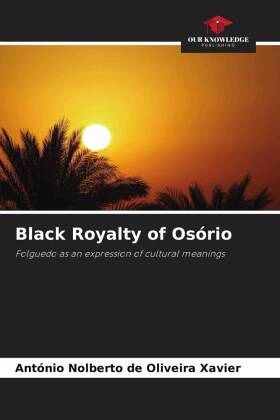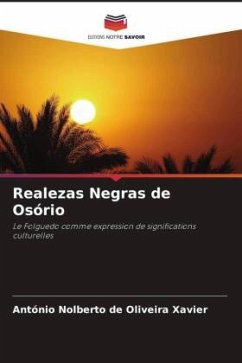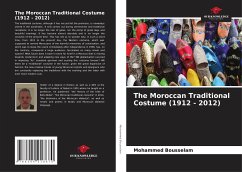
Black Royalty of Osório
Folguedo as an expression of cultural meanings
Versandkostenfrei!
Versandfertig in 6-10 Tagen
45,99 €
inkl. MwSt.

PAYBACK Punkte
23 °P sammeln!
The Brazilian culture brings in its formation the contributions of several groups that, having been enslaved in Africa, arrived in the country to build an immense heritage, whose expressions multiply in dances, culinary, vocabulary, celebrations, and religiosity. One of the first groups of enslaved blacks to arrive in Brazil was the Bantos, from Congo-Angola, which is present in several states and from which we can still see, even today, practices, knowledge, and experiences that, mixed with the cultures of other peoples, gave rise to the Brazilian "cultural broth". Realezas Negras registers a...
The Brazilian culture brings in its formation the contributions of several groups that, having been enslaved in Africa, arrived in the country to build an immense heritage, whose expressions multiply in dances, culinary, vocabulary, celebrations, and religiosity. One of the first groups of enslaved blacks to arrive in Brazil was the Bantos, from Congo-Angola, which is present in several states and from which we can still see, even today, practices, knowledge, and experiences that, mixed with the cultures of other peoples, gave rise to the Brazilian "cultural broth". Realezas Negras registers and analyzes the elements that construct the meaning of one of the manifestations that revives a historical-political fact - the Coronation of the Kings - as a practice of resistance and a symbolic space for the construction of belonging, through the staging of the Moçambiques folklore.A celebration of a political-social-religious nature, the MAÇAMBIQUES, as it is called in the Municipality of Osório, is a festival that, since the end of the 19th century, has been held by the remnants of a quilombo made up of black people who survived the destruction of a ship that would take them to work as slaves in the charcoal works in the southern region of the state of Rio Grande do Sul.












